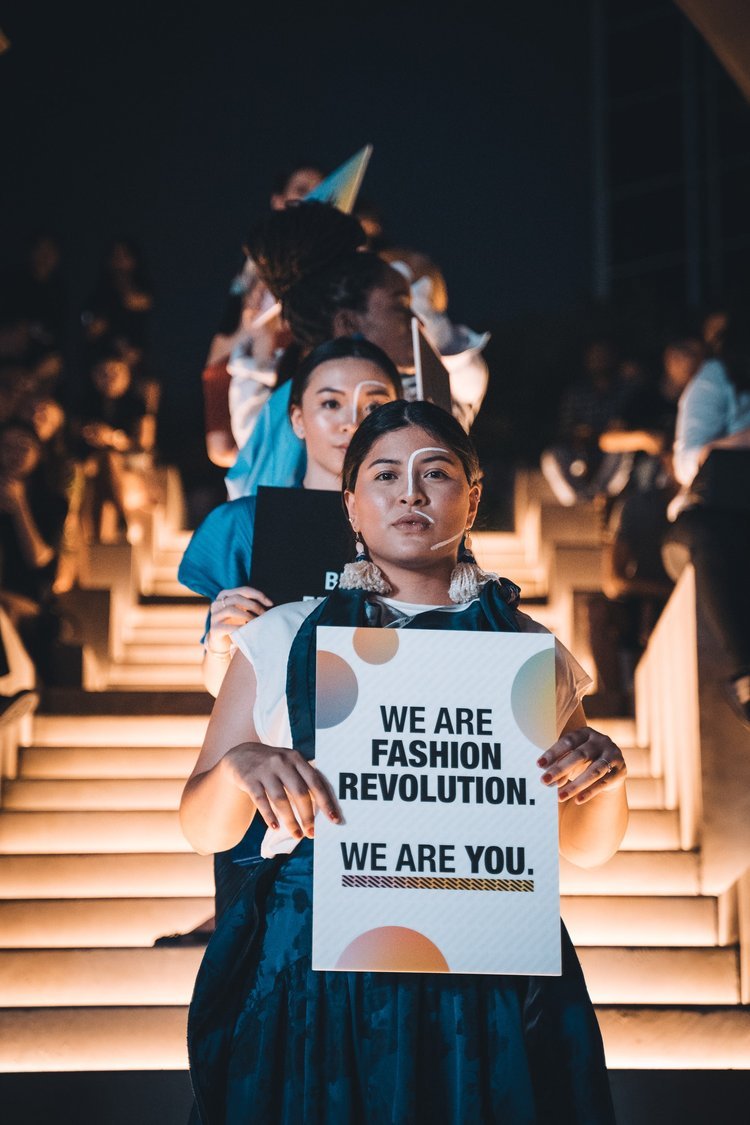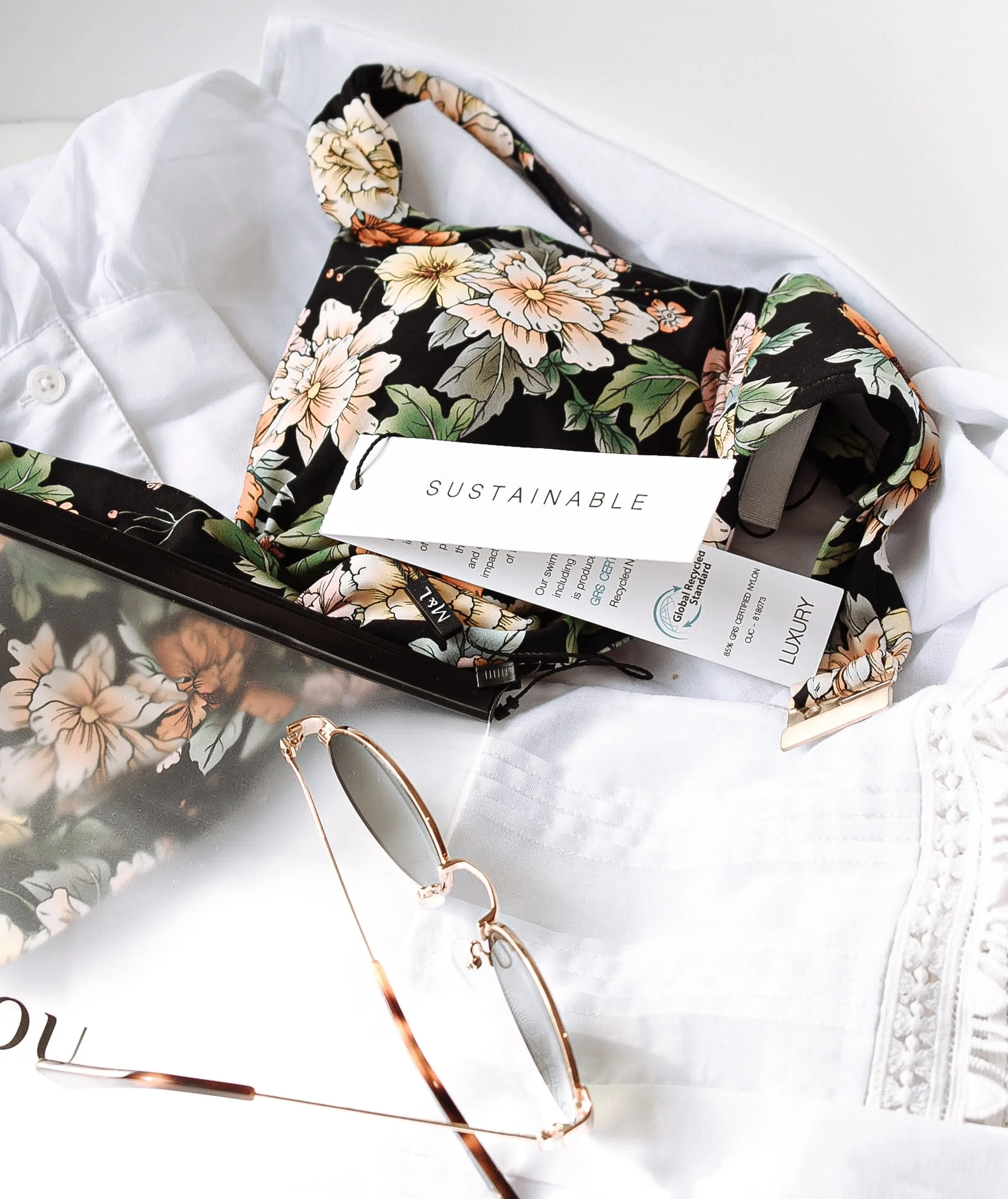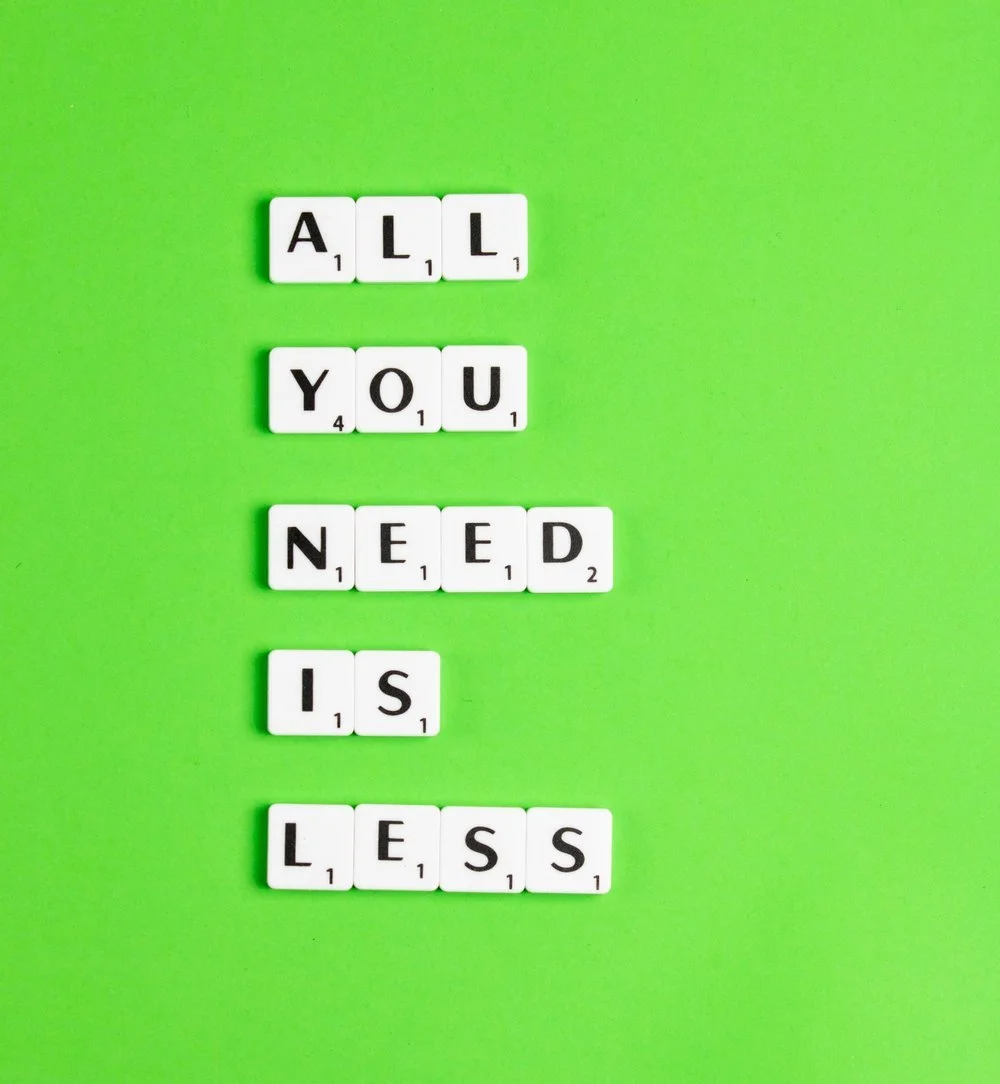The Pros & Cons of Sustainable Fashion
Blog post from 2018 fashion blog: PIECES OF HERR
With the topic of sustainability in different industries beginning to trend, greenwashing and misleading claims on "eco-conscious" and "sustainable" practices are becoming more mainstream, and for the common consumer, increasingly difficult to understand. Before we continue with this article, let’s break down the basic definition of sustainability, as I'm sure a few of you are still confused about what it means or you've been bombarded with so many "sustainable" ads that make it impossible to remember.
Sustainability: Avoidance of the depletion of natural resources to maintain an ecological balance.
Now that we know what sustainability means on a basic level, let's get into the cons of sustainable fashion.
Cons of Sustainable Fashion: Greenwashing & Misleading Claims
Sustainability is a structure that covers so many different elements of industry sectors and although it is an action and not only a word, the term has been tossed around and included frivolously in many brands' social responsibility values and commitment statements.
This is what brings up the negative side effects of sustainability.
Just because you write "sustainable", "eco-conscious" or "green" on your website, product tag or garment, doesn't actually mean your brand and what you're selling is actually sustainable. The issue here is that there is very little regulation and accountability to ensure that brands using these statements have policies and proof to back them up, instead of simply using them as a marketing hoax.
There are so many layers to sustainability in fashion that goes way beyond updating an About Page on a website and organizing "green" brand campaigns like planting trees on a runway or claiming your brand is committed to using better materials. Although these actions are valid, they aren't everything and calling a brand sustainable based on the sole merit of a couple of marketing and public relations initiatives, simply isn't enough.
Social responsibility and sustainability in the fashion industry start from every single stage of the production process. This means there needs to be a measurable change in trajectory for how we design, farm, manufacture, produce, ship and advertise our products.
Although this greenwashing epidemic is a great cause for a lot of misconception and confusion about the term sustainability, we've also seen many pros to the sustainable fashion movement.
Pros of Sustainable Fashion: Awareness & Action
One of the main benefits of sustainability in fashion is that people are starting to realize what a major concern it is for the health of our environment. The fashion industry is one of the largest negative contributing industries to the environment, and in 2013, over 15.1 million pounds of textile waste ended up in landfills or incinerated in the US alone.
Imagine how much that has increased since then. And this is mostly due to our excessive consumption of fast fashion.
Although these stats are bad, at least we now know them, and can become more knowledgeable of the issues that our personal shopping habits are causing. This way we can make measurable and maintainable actions to improve/reduce our consumption.
Thanks to the environmental focus that climate activists brought to light in 2019, the importance of immediate action is now surfacing and is being demanded by the public.
"What Can I Do? I'm Nobody."
The road to full sustainability in the fashion industry is going to be a very long one. There are so many international laws and policies that need to change in order to start seeing a substantial difference.
But, there won't ever be a substantial difference needed unless a million of "nobody's" raise their voice and are heard.
This cause isn't made to be "Trending Now", it's an issue that needs to be seriously addressed. It's not about getting monetized, viewed, subscribed to, or recognized, it's about us actually caring enough for the trees outside our windows, the air we breathe, the children that we want to have, and the places we want to visit, to take action and do what we can to make a difference.
Thankfully, there is a way to make sustainable fashion choices, even on a budget - with just two simple rules:
Rule 1: Increase Your Awareness
If you're someone who doesn't work in a position of power to pass equality and environmental justice laws, what you can do to create change is know what you're wearing and where it's coming from.
Ask yourself; who is producing it? Where is it being produced? Are those responsible for making our clothes treated fairly? Are farms being overgrown and animals being overkilled to satisfy high demand?
Do your research before you buy and be open-minded to learning from others. But also, be careful of greenwashing. Brands exist to make money, grow their audience and establish strong consumer (you) relationships. Know where your money is really going.
KNOWLEDGE IS POWER.
Rule #2: Buy Less
The second rule is to buy less. This doesn't mean that you should never buy and it's also not asking you to lose out on great clothes. The buy-less rule goes for avoiding those $6 - $24 items and saving for garments that are better quality and will last you longer.
That way, instead of buying 12 new items of fast, low-quality clothing, you can put your money into a quality item that will last longer, therefore slowing down the waste cycle.
"The focus should really be on buying less and wearing what you own over and over again, rather than buying too much cheap, disposable clothing." - CNN Read Full Article.
Avoid fast fashion mega-brands such as H&M, Forever 21, FashionNova, Ardene, Zara, SHEIN and other fast-fashion retailers. Just because a brand is big doesn't mean it's becoming sustainable it just means it can afford great advertising campaigns.
I understand most of us cannot afford luxury fashion, nor should we have to. Many mid-range brands carry high-quality items at reasonable price points that also care about the environment and the people who made their clothes. (Learn more about those brands here)
Although this doesn't solve the problem overnight, steering away from fast fashion and implementing a slower consumption model where you choose higher quality garments or secondhand first, can be one of the most sustainable options at the moment.
Our environment depends on the ethical and responsible actions brands take to contribute to the environment.
The weight cannot fall completely on the consumer. Brands are very much responsible to shift the way we view and connect with fashion.
The way brands position themselves, communicate, target consumers and operate their supply chains directly affect consumer purchasing decisions and society's overall view of how we should consume fashion. We need brands to take action in order to see real change, but we also need to require brands to change and support the ones who are trying to make a difference.
And by "change" I don't mean their sustainability page on their website. I don't mean using "consciously-sourced" green tags on mass-produced collections either.
(*cough* H&M *cough*)
If an item is actually “sustainable” it wouldn’t be mass-produced - it’s that simple.
I also don’t mean deflecting responsibility for the negative contribution our industry makes. And I most definitely don't mean claiming to be “socially responsible” when our factory workers are underpaid and mistreated to increase production.
By "seeing real change", I mean acknowledging our industry is a major contributor to environmental and social issues and doing something about it. I mean refusing to associate ourselves with manufacturers and partners that do not have the same work practices and values that we do. I mean being transparent with how we get our materials, who makes our clothes, how we package items - all of it!
I know we're not perfect, in fact, we're far from it... but if we commit to showing authenticity and transparency in what we're doing and changing the way we operate, we can at least start to move in the right direction.
It's our responsibility.




